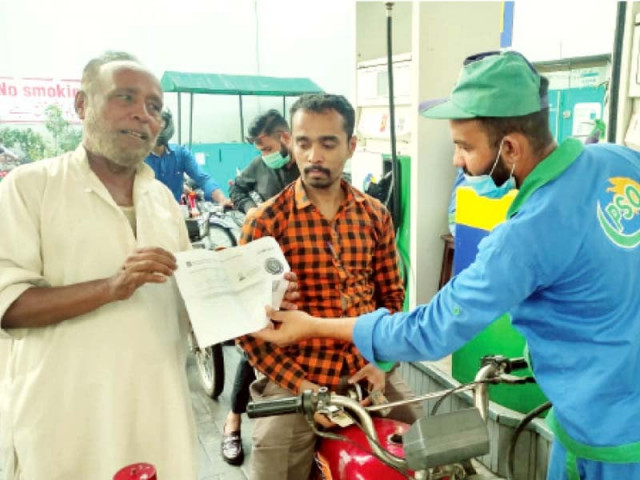Citizens throw caution to the wind
Rampant violation of Covid safety guidelines continues

At a time when Covid-19 is at its peak in Punjab, violation of the precautionary standard operating procedures (SOPs) by the people is continuing and the local administration in various districts also appears oblivious of the severity of the risk.
Violations of the SOPs are being reported at almost every post public place and department, especially fuel stations, educational institutions, offices, hospitals, bus stations, Metro Bus and Orange Line train stations and markets.
Indoor and outdoor functions are also being held with violations of the safety guidelines. Businesses are also continued secretly behind closed shutters of shops because of the failure of the departments concerned to enforce SOPs while shutter down business secretly continue while local governments are failed to enforce the SOPs advised by the National Command and Operation Centre (NCOC).
The rampant violation of the guidelines amid an alarming level of the fourth wave of coronavirus spread has failed to sufficiently activate the local government officials to take strict measures to protect the people from the infection.
At least 1,602 new patients of Covid-19 were reported in Punjab during g the past 24 hours, including 639 in Lahore.
The pandemic claimed 39 lives in the province, of which 22 were reported in Lahore.
The Coronavirus positive test ratio in the provincial capital was 10.6 per cent, substantially higher that the overall rate in the province of 6.9%.
The NCOC introduced fresh guidelines and restrictions last month to counter the spread of the virus, but their implementation has been disappointing.
Commenting on the situation, Sir Ganga Ram Hospital's former medical superintendent Dr Abdul Basit both the people's attitude and the government's performance in this regard were questionable.
"Just see the crowd at public transport stops, especially the Metro and Orange Line stations in Lahore. There is no social distance or any other safety step at the stations, but no action had been taken to reduce the crowds and impose the SOPs, or persuade the people to take them seriously," he said.
The doctor said both the citizens and the authorities were responsible for the spread of coronavirus. He stressed an urgent need to implement the SOPs.
An official of the provincial health department told The Express Tribune, "There was a fine over not wearing mask during the third wave but we relaxed that policy. As a result, majority of people now do nor wear a mask while travelling in buses, taxis and rickshaws."
He said students in educational institutions and shoppers in markets also appeared averse to wearing masks. He said the responsibility of implementing the SOPs should be assigned to the authorities without any ambiguity.
"There are two major reasons of the spread of coronavirus, not following the SOPs and lack of vaccination. It is a positive thing that the government is speedily doing vaccination but at the same time there is the issue of lax implementation of the SOPs. We should consider implementaion of the SOPs more important than vaccination and request the people to follow them," said Dr Ghulam Fareed, Senior Medical Officer at Mayo Hospital.
When asked about a ban on serving unvaccinated customers, the manager of a petrol filling station said, "We are demanding the vaccination confirmation message from the people but they are arguing with us. We cannot afford crowding at our outlet and our main interest is our business.
When contacted, provincial health department spokesman Sayed Hamad Raza said, "Punjab government is making all efforts to curb coronavirus and in this regard our focus is on vaccination and maintaining the infrastructure required for the treatment at hospitals. However, there is need of public responsibility and also for the departments concerned to play their role to implement the SOPs. We cannot afford any mistake in this regarded d in the prevailing situation.
Published in The Express Tribune, September 2nd, 2021.



















COMMENTS
Comments are moderated and generally will be posted if they are on-topic and not abusive.
For more information, please see our Comments FAQ